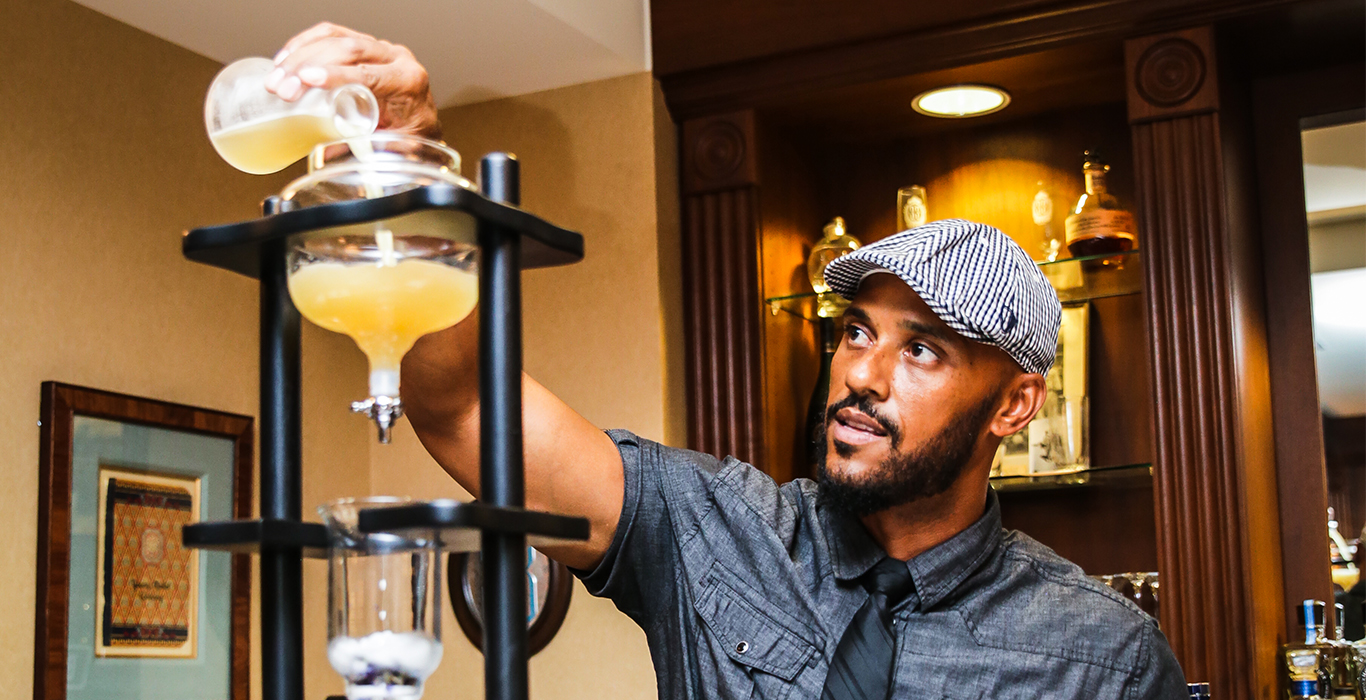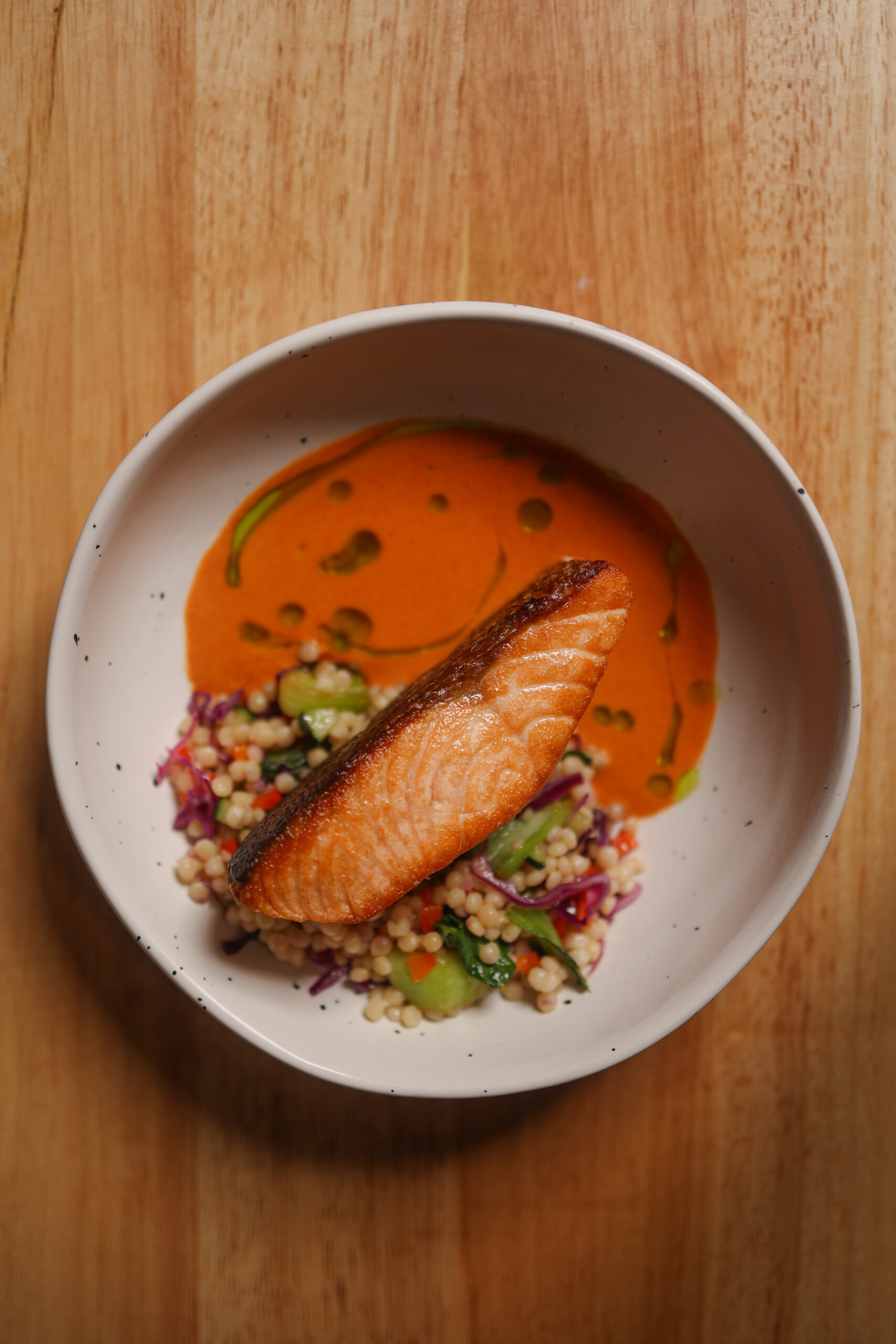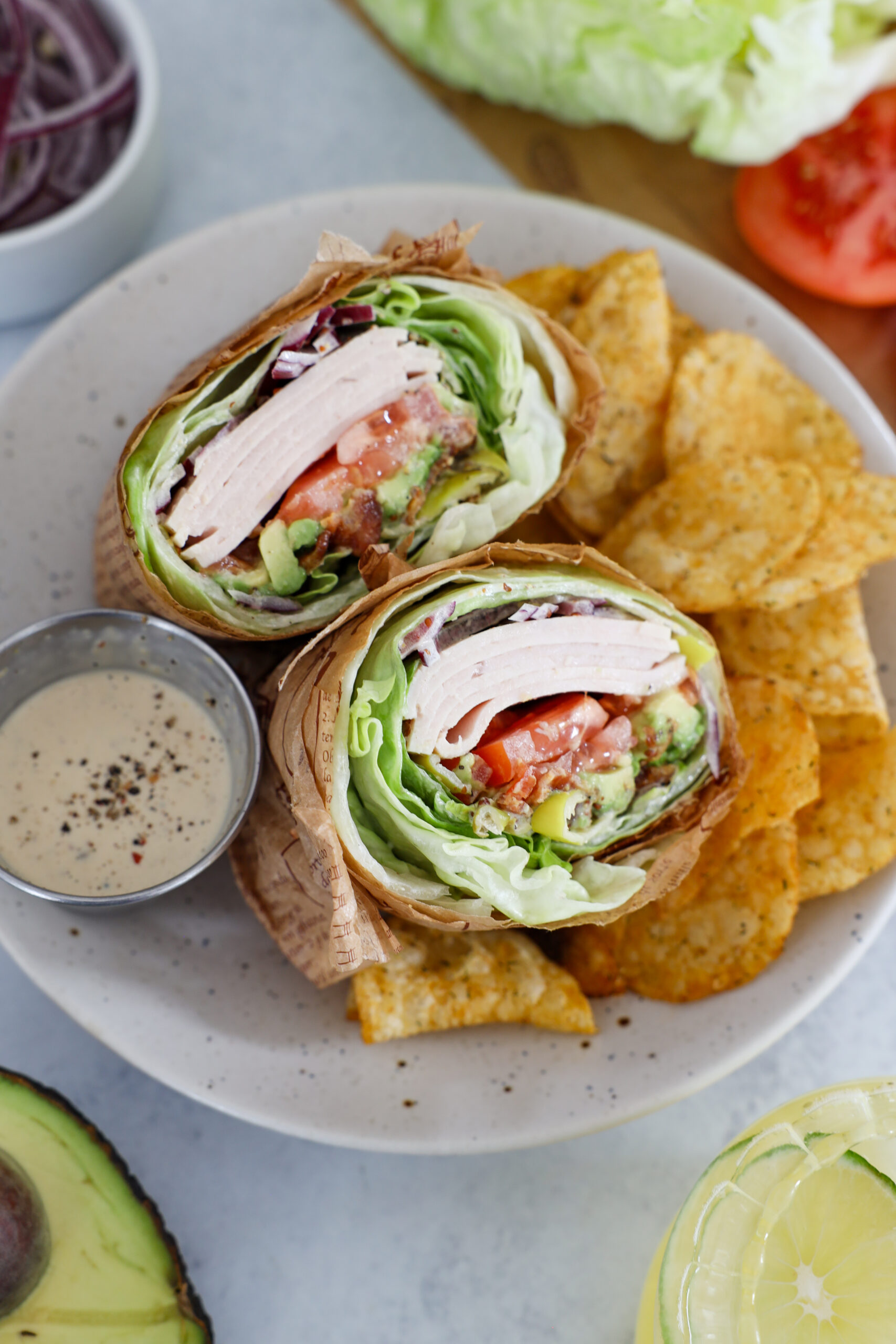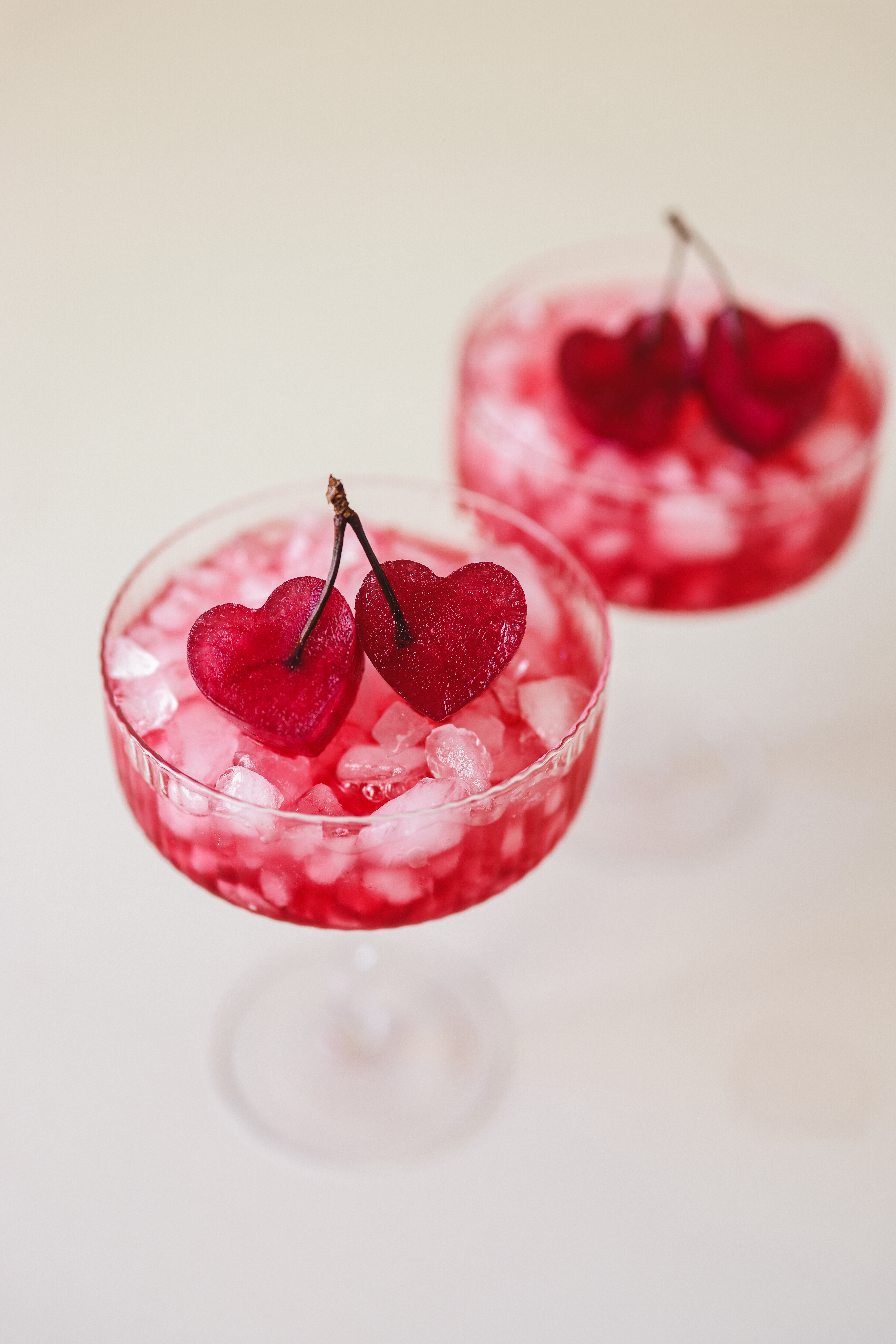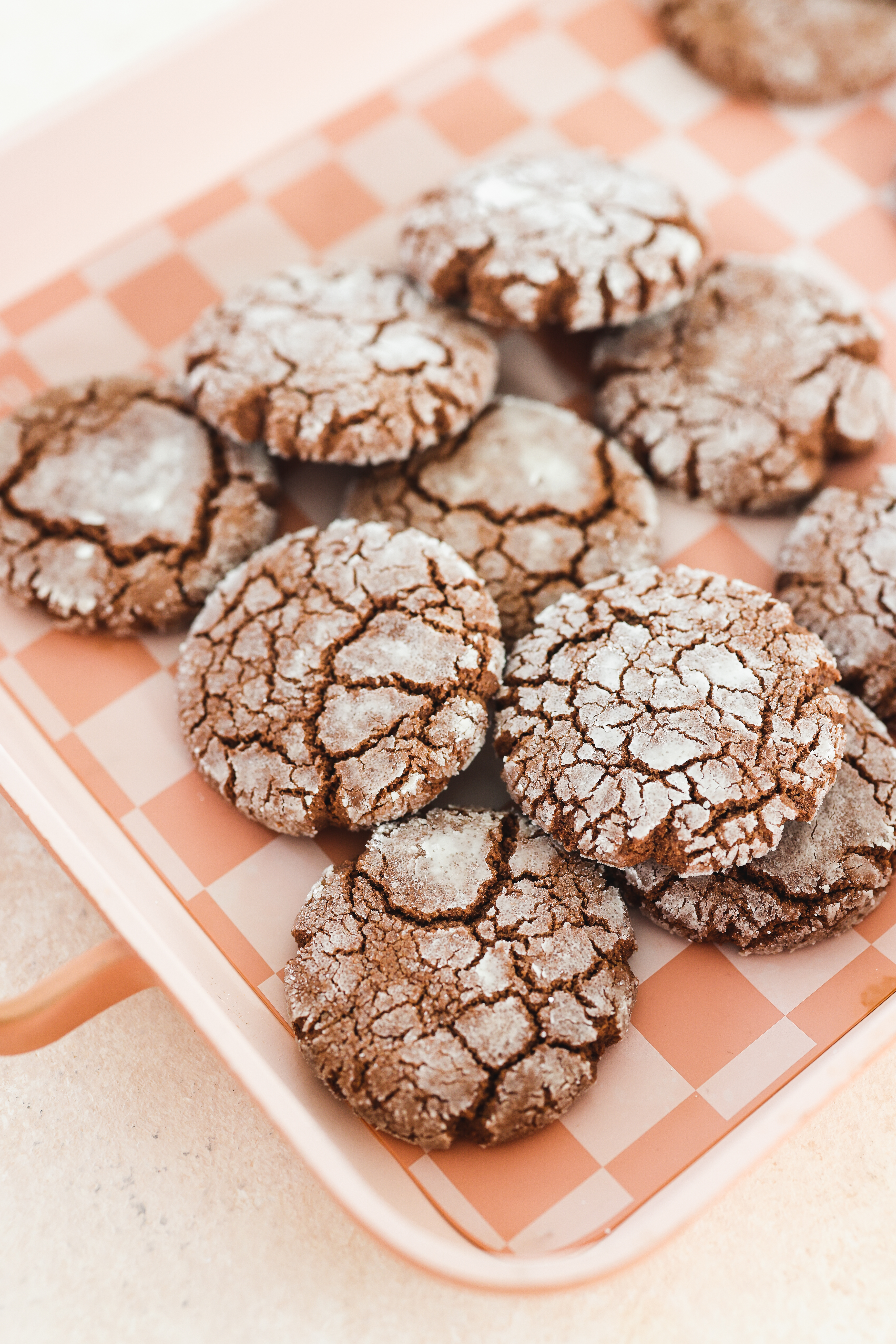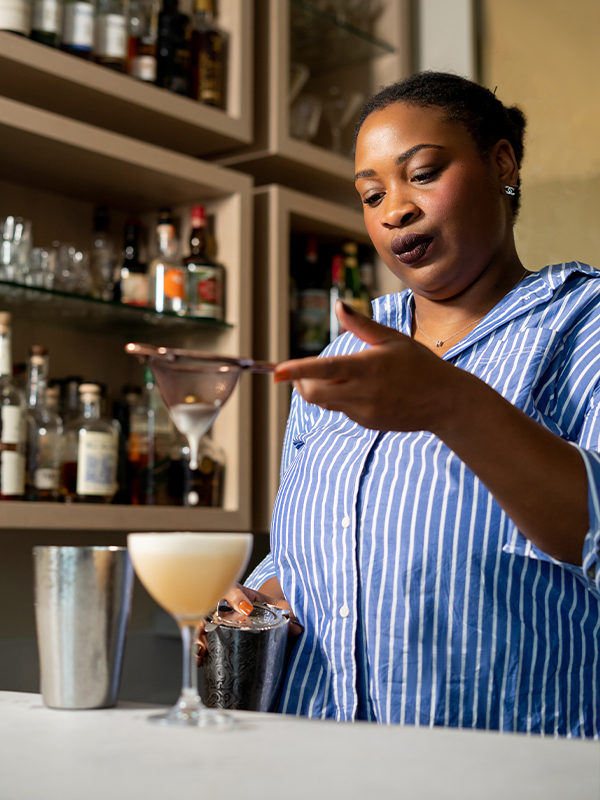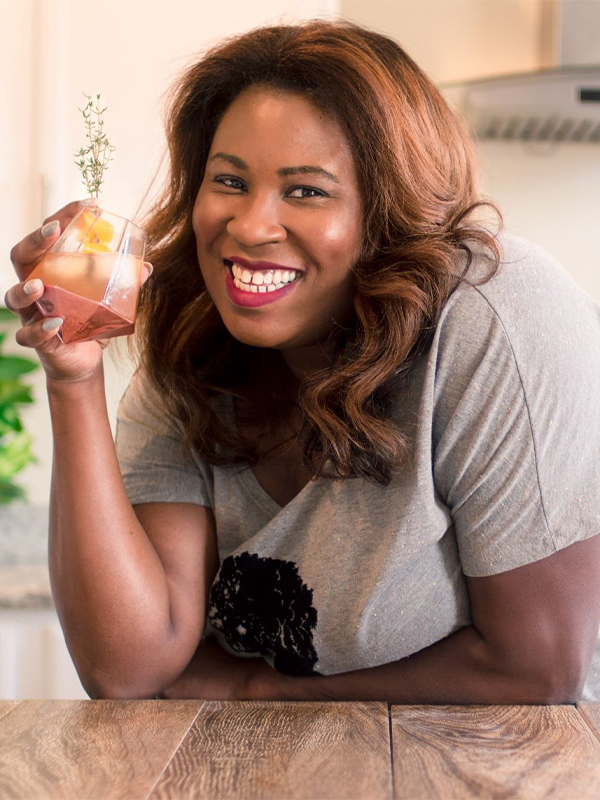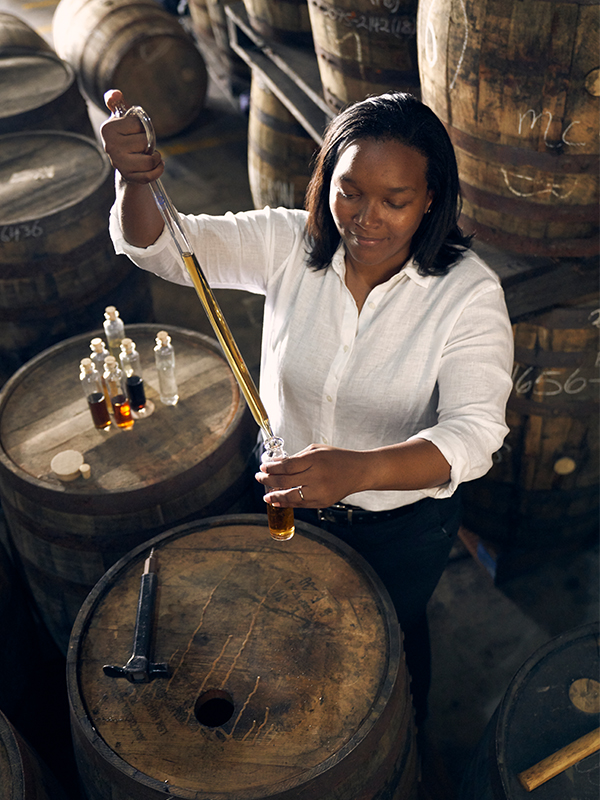From the classic Mad Men-era gimlet to hot girl summer margaritas, mixology has a storied history. Tracing the origins of the American cocktail has been widely debated, but what’s unmistakable is how inextricably linked Black culture is to the world of spirits.
As early as the pre-Prohibition era, old-fashioned drinks were being pioneered by Black bartenders for Black patrons in juke joints and underground social clubs. New Orleans emerged as the cocktail capital for the cultivation of artisanal liquors and beverages. Often known for its cherished tradition of savoring libations, New Orleans was the place where Deniseea Taylor, a Los Angeles native, established her personal brand, Chicken and Champagne, and opened her cocktail emporium, the Good Trouble Lounge. “The music and vibes is what inspires my cocktail making,” she says.
She’s also inspired by the rich history that can be found in every spirits bottle—if you search hard enough. She shares, “Rum is connected to the Atlantic slave trade, so [I ask myself] ‘how do I put that in a glass for someone that doesn’t go over their head?’ I’ll create a plantain daiquiri with plantain syrup, aged rum and lime juice. I always make sure it comes back to our roots and the ingredients and techniques that we brought here.”
Many classic drinks were prime products of Black bartenders, but these stories aren’t widely known. Once a sweet medicinal drink, the Mint Julep was considered to be the perfect potion prescribed only to cure stomach aches and sore throats, according to medical communication journals published in 1784. But the drink would become a southern favorite that was consumed recreationally after being mastered by Black mixologists in Virginia.
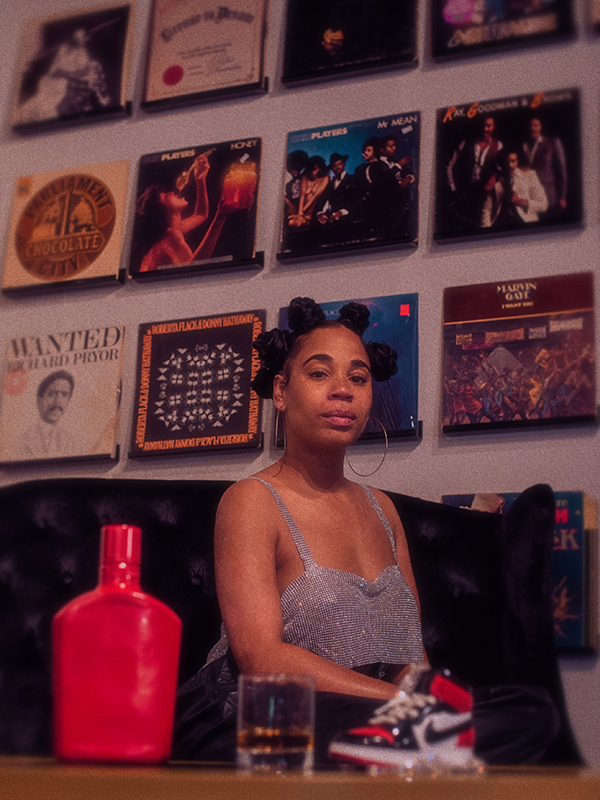
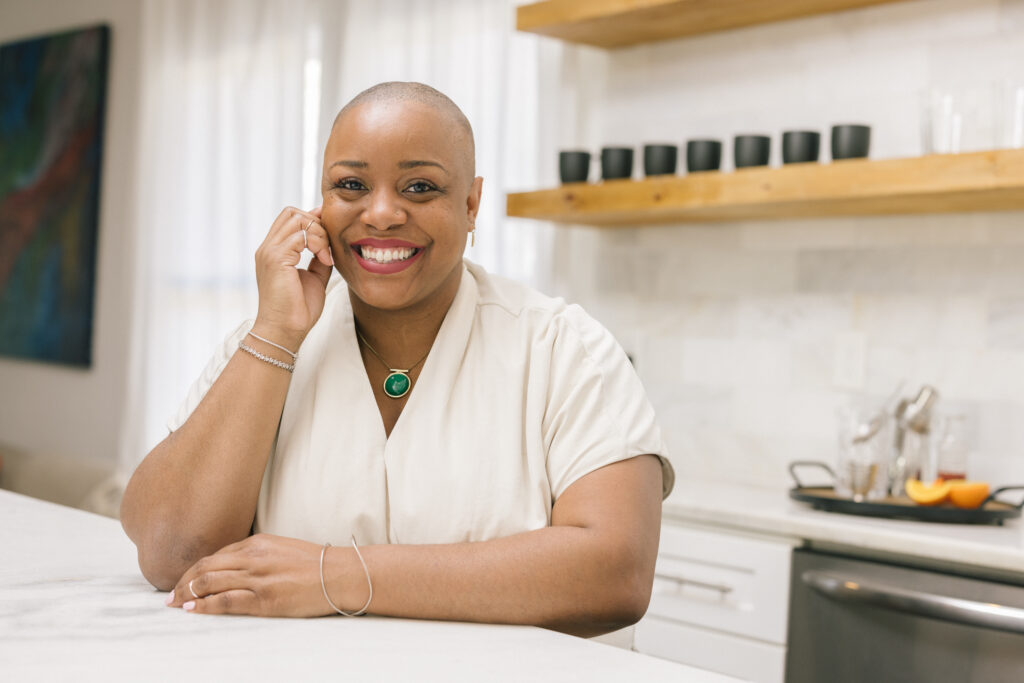
It’s these stories that compelled Atlanta-based mixologist Tiffanie Barriere to unveil the untold history of Black cocktail extraordinaires in an upcoming book she’s co-authoring (which hasn’t yet been disclosed).
“Early on in my career, I noticed everyone told a background story of their family, heritage or a certain bottle coming from somewhere,” says Barriere. “I started thinking that, if the majority of those households had enslaved Black people, we were making cocktails and spirits, so I wanted to uplift these names.”
Barriere always helped out with family house parties since she was a kid and unknowingly found her niche for beverages. By her thirties, she was working at an airport bar—the serendipitous start to becoming one of Atlanta’s most innovative mixologists. Her successful career has evolved into “The Drinking Coach” brand known for pop-up bars, collaborations with culinarians and cocktail classes.
“I love helping people to get to know themselves and what they like,” says Barriere.
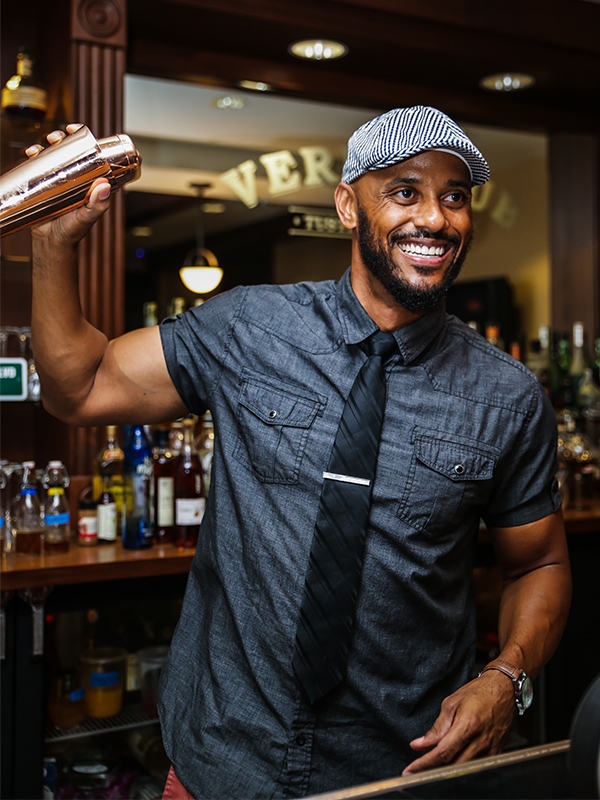
Cocktail recipes weren’t always shared freely—and finding ones by Black professionals was even harder to come by. “When you’re looking through different cocktail books and you’re studying your craft and trying to learn more, it’s not often that you find one that’s written by an African American in the 1800s and 1900s,” says LA-based mixologist Phil Wills.
With more than 10 years of experience in the industry, Wills says he studied the cocktail cadence of some of the greatest bartenders to level up on his drink-making skills. He and his business partner Tony Pereya bootstrapped their bar consultancy business, Spirits in Motion, while doubling as bartenders at night before fully committing to making their business venture a priority.
The duo has since scaled operations to four major cities in the U.S. and, as their name suggests, are always on the move to take American cocktail culture overseas. Traveling internationally to serve cocktails has exposed Wills to the drinking culture of different regions, and has given him the opportunity to share and honor the influences of Black mixologists in spirits.
“A lot of really good bartenders study the old cocktail books, but African American bartenders that are mixing drinks and creating experiences for guests today—that comes from their soul,” says Wills.
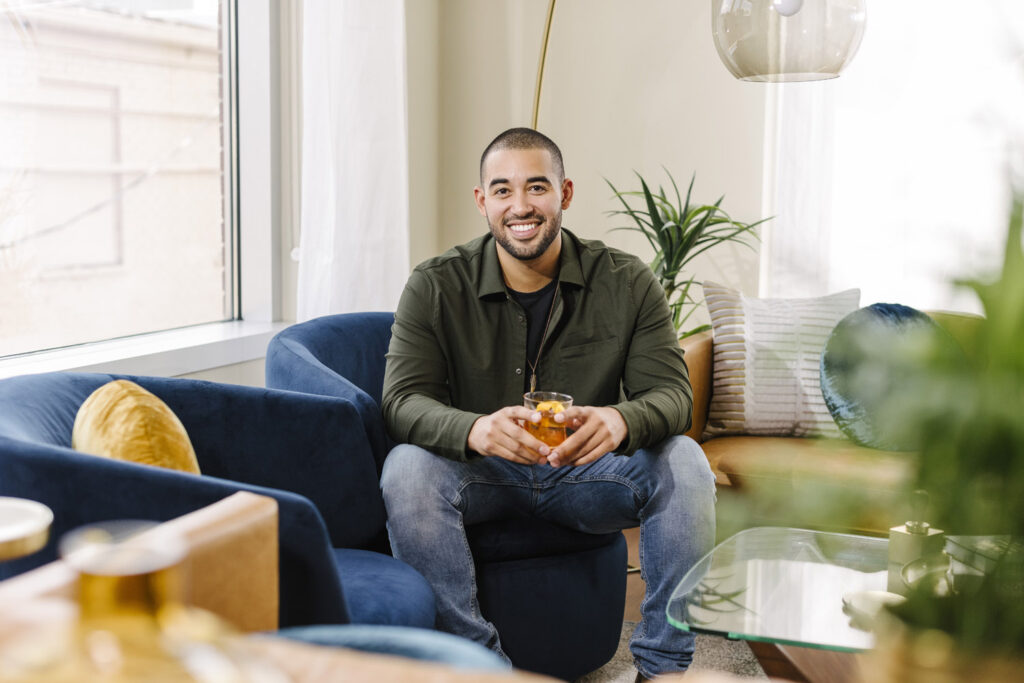
Meanwhile, Elliott Clark, founder of the lifestyle platform Apartment Bartender, has a mission to make the world of spirits and cocktails more “approachable and accessible” by bringing home mixology to spirit lovers. But he’s also interested in shaping a more diverse future for the industry.
Only about a handful of Black bartenders that he knows of reside in Denver. Clark, who is Mexican and Black, sees the lack of representation as a prime opportunity to build a stronger network for bartenders of color.
“The drink scene here is great and it has developed in the past four years that I’ve been here,” says Clark. “[But] there are not a lot of spaces that are dedicated to the Black community that bring that level of soul to the city. That’s something I would love to see.”

